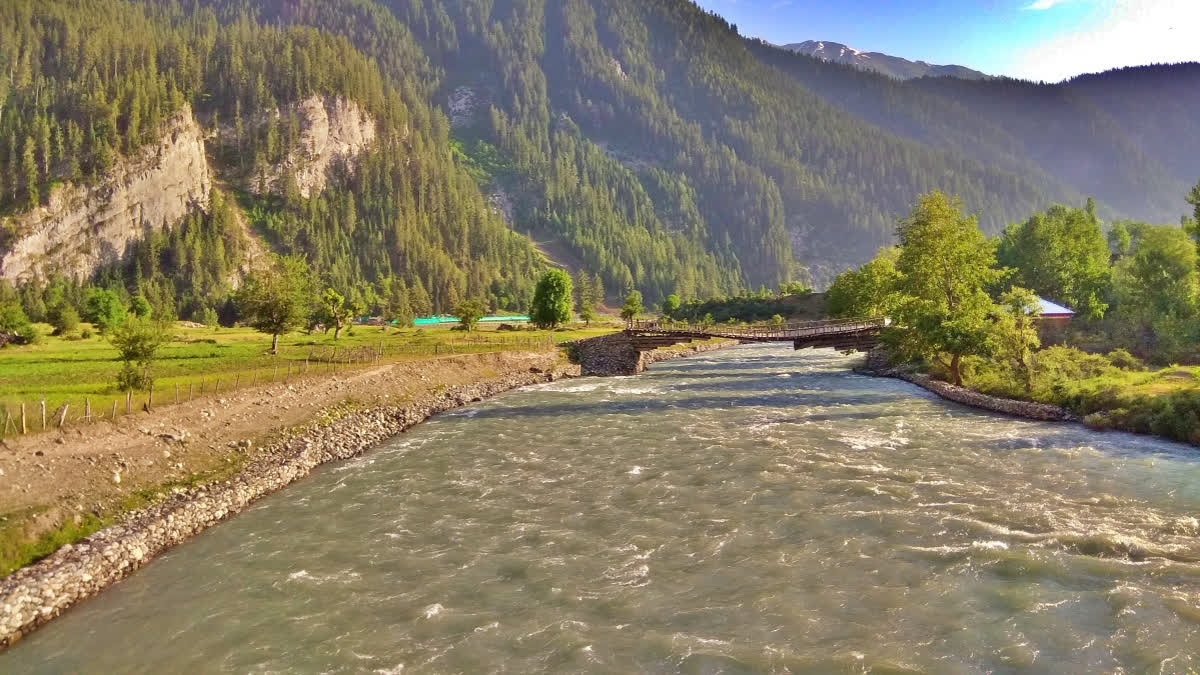Srinagar: A 40-member delegation consisting of Pakistani, Indian, and neutral experts conducted an extensive tour of the 850-megawatt Ratle hydroelectric power project in Kishtwar district under the framework of the Indus Water Treaty (IWT) on Monday.
Upon landing at the Kishtwar helipad via India’s Boeing-CH 47 Chinook heavy-lift helicopter, the delegation proceeded directly to the project site on the banks of the Chenab River at Drabshala along the Batote-Kishtwar highway.
Sources said that the visit was conducted under tight security, with workers and other personnel kept at a distance to maintain confidentiality. At the site, the delegation reviewed project documents and received a briefing from National Hydroelectric Power Corporation (NHPC) officers.
The delegation will remain in Kishtwar for several days and is expected to visit the 1000-megawatt Pakal Dool hydroelectric project on the Marusudar River, a tributary of the Chenab. The Ratle power project, a run-of-the-river initiative, was inaugurated on June 25, 2013, by then Prime Minister Dr Manmohan Singh. The project faced delays due to internal issues and the withdrawal of the GVK Reddy group from its agreement with the government.
In 2016, Pakistan raised objections with the World Bank over the design features of the Ratle and Kishenganga projects, seeking resolution through neutral experts. Pakistan later requested adjudication by the Court of Arbitration, which India opposed, advocating for a neutral expert resolution instead.
Following unsuccessful negotiations, the World Bank appointed a neutral expert and the chair of the Court of Arbitration in October 2022, prompting India to warn that such parallel considerations were not covered under the IWT.
In July 2023, the Court of Arbitration declared its competency to address Pakistan's disputes. Pakistan presented its legal case documents, and the Court conducted its first site visit to the Neelum-Jhelum Hydro-Electric Plant in Pakistan-Occupied Kashmir. India declined to participate in the Court of Arbitration, submitting its case to neutral experts. In September, Pakistan joined the second meeting with neutral experts in Vienna.
The World Bank’s neutral experts are on a four-day visit to Jammu and Kashmir to inspect run-of-the-river power projects.
Read More
Indus Waters Treaty: Why India Will Not Be Concerned About Pakistani Delegation’s Visit



